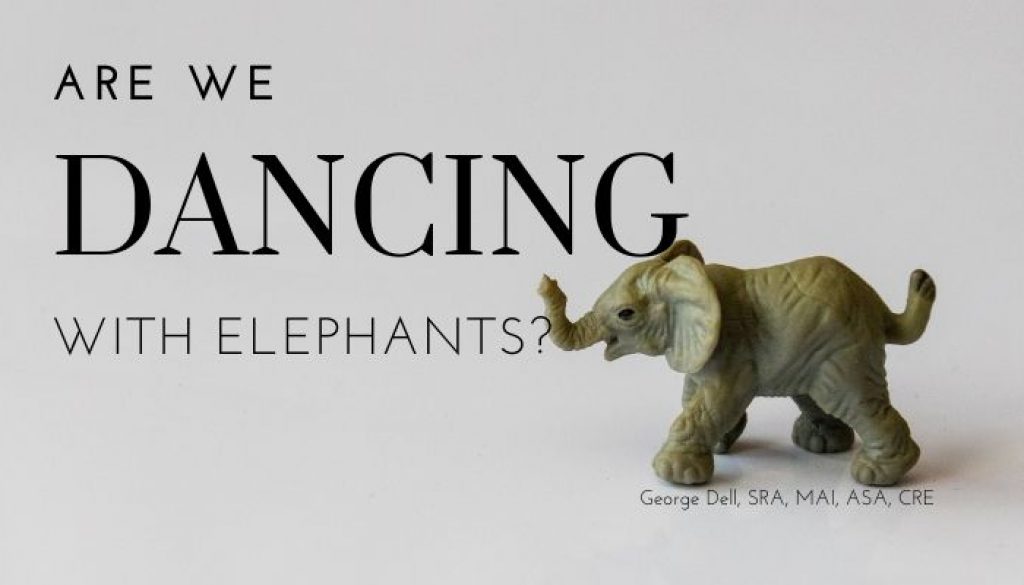What are the elephants in the room? The elephants are our beliefs. These are the beliefs we all assume to be true.
Let’s look at the first of our herd of elephants: number 1 – judgment.
We often hear it said that no machine can replace human judgment. Or that appraisal will always require someone to make decisions that computers cannot. So, what is “judgement”? How is it formed? And how does this relate to artificial intelligence and computer power?
Judgment is defined as the ability to make considered decisions or sensible conclusions. So how does good human judgment develop? Experts Daniel Kahneman and Gary Klein studied how good judgment and intuition is developed. There are two conditions:
- A regular, sufficiently repeating environment is necessary; and,
- Ongoing opportunity to practice and learn of the regularities.
Similarly, there are two detriments to the development of good judgment:
- Noisy environments may mask from human detection; and,
- Accurate fast feedback is needed to improve judgment.
Machines, on the other hand, are good at detecting weak or sparse clues, and work immediately on any available feedback. Feedback is usually fully automated for machine learning algorithms.
So how does this relate to decision-making for loans, investments, and justice? It appears there are four elements for making relevant decisions.
- Identify the problem (highest and best use?)
- Invoke a useful algorithm/model (which approach to value?)
- Apply model judgment as necessary (‘best comps’ and adjustment amount)
- Clarify and explain the solution path (report on a form or spreadsheet cell)
One conflict: Research shows that humans tend to trust algorithms more than others’ judgment, because human bias is seemingly taken out of the equation. Yet humans also tend to trust their own judgment. So, should we consider this “bias,” in overall solutions to asset management? I believe yes. We can look at how human judgment can be improved.
We are always faced with the benefits of system structure, while needing freedom to break out toward a better solution. Does this sound like the paradox of the appraisal form? Does it look like the little jail cells of a spreadsheet? So useful, yet so constricting?
Any solution to the future of collateral assurance, investment potential, or fairness must likely consider the tradeoffs of three elements:
- The trust and benefits of repeatability of standard machine algorithms and ‘forms.’
- The human gift to see patterns and find new solution paths.
- The up and down side of human bias.
Any modernization of the appraisal process probably should look at how human judgment is affected by the proscribed system and enclosing forms and cells. It must consider such simple issues as “anchoring” – the human tendency to prejudice toward the first number seen. Anchoring seems to be completely independent of any good intent to be “impartial, independent, and objective.” It is not a conscious process. It appears to be a primal response, built in for physical survival – but not well suited for objective analysis. Will we now need to consider the psychology of judgement in the profession?

October 23, 2019 @ 1:09 am
If an appraiser Anchors on the Sales Price, and then looks for sales that will support it, is that exercising good judgement?
October 23, 2019 @ 7:45 am
That sure sets things straight. Are you sure you did not miss your calling of being a philosopher. I am always more confused after reading one of your articles than before I started. Last I heard, that is not the purpose of placing pen to paper. At least you could have clarified your main point. Are you saying don’t trust humans and machine that they both are flawed?
October 23, 2019 @ 9:54 am
Sometimes yes, sometimes no. Which is the right answer depends on what else the appraiser does.
August 8, 2021 @ 7:31 pm
Just exploring how we can improve our judgment and decisions.